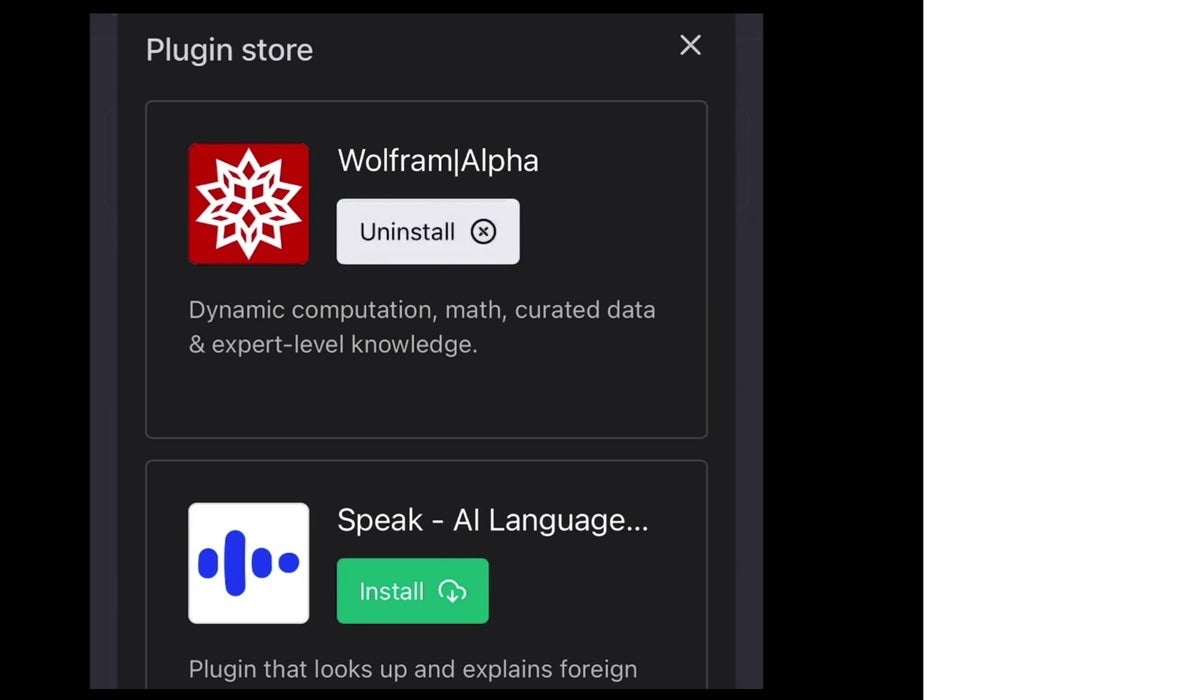OpenAI, the Microsoft-backed company that developed ChatGPT, announced Thursday support for plugins designed to make it easier for companies to integrate chatbot functionality into their products.
The first plugins have already been created by Expedia, FiscalNote, Instacart, KAYAK, Klarna, Milo, OpenTable, Shopify, Slack, Speak, Wolfram and Zapier, OpenAI said.
“We are gradually rolling out plugins into ChatGPT so we can study their use, impact, and real-world alignment and security challenges, which we will all need to master to accomplish our mission,” San Francisco-based OpenAI said in a blog post. mail.
OpenAI plugins are tools specifically designed for language models that help ChatGPT access up-to-date information, perform calculations, or use third-party services.
Users can click and download any number of plugins that are currently offered. For example, users of the Instacart grocery delivery service can download ChatGPT plugins and start using the natural language processor to request information such as restaurant recommendations, recipes, ingredients for a meal, and the total number of calories in that meal. .
A sample question could be: "I'm looking for vegan food in San Francisco this weekend. Can you give me a good restaurant suggestion for Saturday and also a simple Sunday lunch recipe (just the ingredients)?" Calculate the calories of the recipe using WolframAlpha.

"Plugins have been requested by users since we released ChatGPT (and many developers are experimenting with similar ideas) because they unlock a wide range of potential use cases," OpenAI said.
The generative AI developer said it plans to gradually roll out access on a larger scale as it learns more from plugin developers, ChatGPT users, and after an alpha period.
The company said it allowed a limited number of plugin developers who were on a waiting list access to documentation that they could use to create a plugin for ChatGPT.
Chirag Shah, a professor of data science and machine learning at the University of Washington, said that while app developers have already been able to use the ChatGPT API to tailor it to products, plugins will make the task much easier.
“APIs require technical knowledge. As with social networks, there are other ways to access services through subscriptions. Plugins make it easy for people to implement ChatGPT without much effort,” Shah said. “They won't work for every company. They are aimed at a specific audience. »
OpenAI admitted that its GPT Large Language Model (LLM) is limited in what it can do today because it wasn't trained with all the up-to-date information for the myriad applications on the web. For example, the LLM computer algorithm you are trained on contains billions of parameters, but they are not specific to what Expedia, for example, might want its users to access.
Currently, the only way for GPT-4 to learn is by training data entry by a user organization. For example, if a bank wanted to use ChatGPT for its internal employees and external customers, it would need to ingest company information so that when users ask the chatbot questions, it can provide bank-specific answers.
Plugins allow ChatGPT LLM to more easily access product-specific company information, details that might otherwise be too recent, too personal, or too specific to include in training data.
"In response to a user's explicit request, plugins can also allow language models to perform safe and restricted actions on their behalf, increasing the utility of the system as a whole," OpenAI said. . "We hope open standards will emerge to unify the ways apps expose an AI-powered interface. We're working on a first attempt at what such a standard might look like and are awaiting feedback from developers interested in building with it." we. .
Copyright © 2023 IDG Communications, Inc.